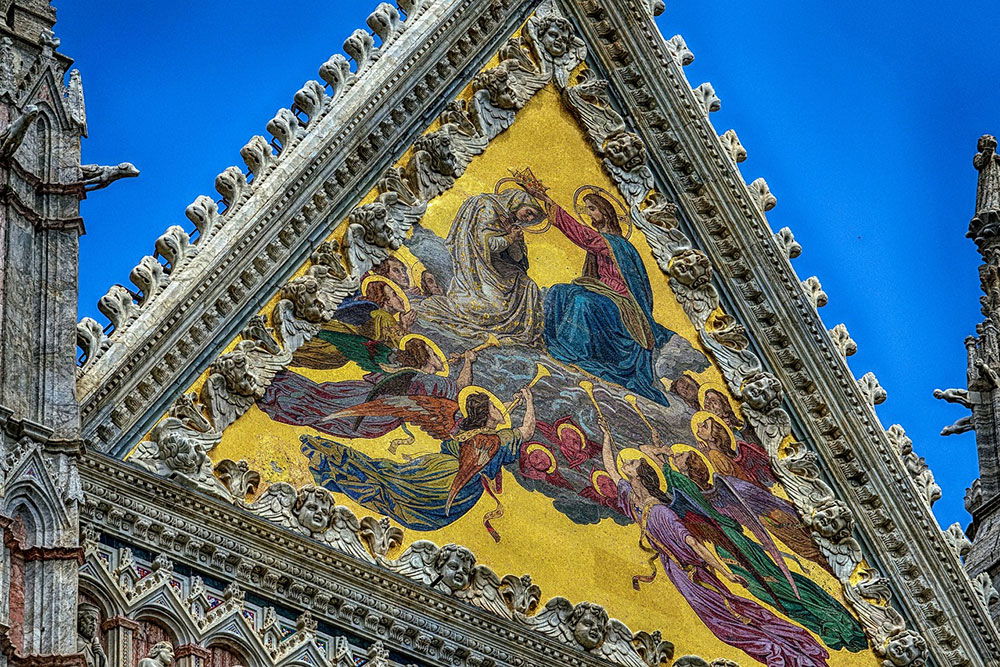
Religion in Italy is deeply embedded in culture, history and daily life, but modern Italians have diverse views on faith that are evolving with each generation.
From large religious festivals in rural towns to quiet moments of private belief, Italians continue to navigate the tension between tradition and modern secular values.
The Catholic Church has been the dominant religious institution in Italy for centuries, influencing education, politics, art and family life across all provinces.
Even today, Catholic symbols are found in homes, schools and public buildings, reminding Italians of their deep historical connection to the Church and its teachings.
While a majority of Italians still identify as Catholic, regular church attendance has declined significantly in recent decades, especially among younger generations.
In provinces like Emilia-Romagna or Piedmont, some parishes struggle to fill pews, while in parts of southern Italy religious traditions are more strongly preserved.
Many Italians maintain a sense of faith in private ways, lighting candles in churches, attending baptisms and praying during times of crisis, even if they no longer follow doctrine strictly.
Religion for these Italians is less about strict observance and more about cultural heritage, personal comfort and community tradition passed down through generations.
Italian family life often reflects religious roots, with Catholic rites such as baptisms, confirmations and weddings still forming important milestones.
Even in increasingly secular northern provinces, families often continue to respect these traditions, blending spiritual meaning with cultural celebration.
Religious festivals remain vital in many parts of Italy, particularly in provinces like Campania and Sicily, where celebrations can last for days and involve entire communities.
These events, from processions to feasts, bring people together in displays of devotion that combine faith, folklore and local pride in a uniquely Italian way.
Living in the only country with the Vatican within its borders, Italians are regularly exposed to global Catholic leadership, particularly through the figure of the Pope.
While some Italians are inspired by papal teachings and appearances, others view the Church’s hierarchy with scepticism and feel it is disconnected from their lives.
Religious education is still offered in Italian schools, though students and families can opt out, and many young people see it as more historical than spiritual.
Young Italians in provinces like Lombardy or Tuscany often describe themselves as spiritual but not religious, seeking moral guidance outside traditional institutions.
In recent decades, secularism has grown in Italy, with more people openly identifying as atheist, agnostic or indifferent to organised religion.
This trend is especially noticeable in urbanised provinces and among highly educated populations, reflecting broader European shifts in belief and social values.
Italy’s increasing cultural diversity has introduced new religions into society, including Islam, Orthodox Christianity, and various Protestant denominations.
In some provinces, this has prompted both dialogue and tension, as Italians adjust to a broader religious landscape that challenges the traditional Catholic dominance.
Many Italian women, especially in younger generations, question the Church’s stance on gender roles, sexuality and reproductive rights, seeking a more inclusive faith experience.
This questioning has led to a more individualised approach to spirituality, as people reconcile their values with religious identity or choose to move beyond it entirely.
Even as religious practice declines, symbols such as crucifixes, saints' statues and sacred music remain powerful aspects of Italian cultural life and national identity.
For many, these elements are no longer strictly religious but instead represent beauty, memory and a connection to ancestry and regional heritage.
Older Italians, particularly in the provinces of Abruzzo, Molise and Calabria, tend to retain stronger religious beliefs and practices compared to the younger generations.
Young adults are more likely to view religion as a personal choice rather than a social obligation, contributing to Italy’s gradual shift toward religious pluralism.
Italians today live in a nation where religion still plays a role, but no longer dominates daily life as it once did, with beliefs becoming more private and personal.
From the deeply devout to the openly secular, Italians reflect a spiritual journey that mirrors the country’s evolving identity, balancing tradition and transformation.

More Details